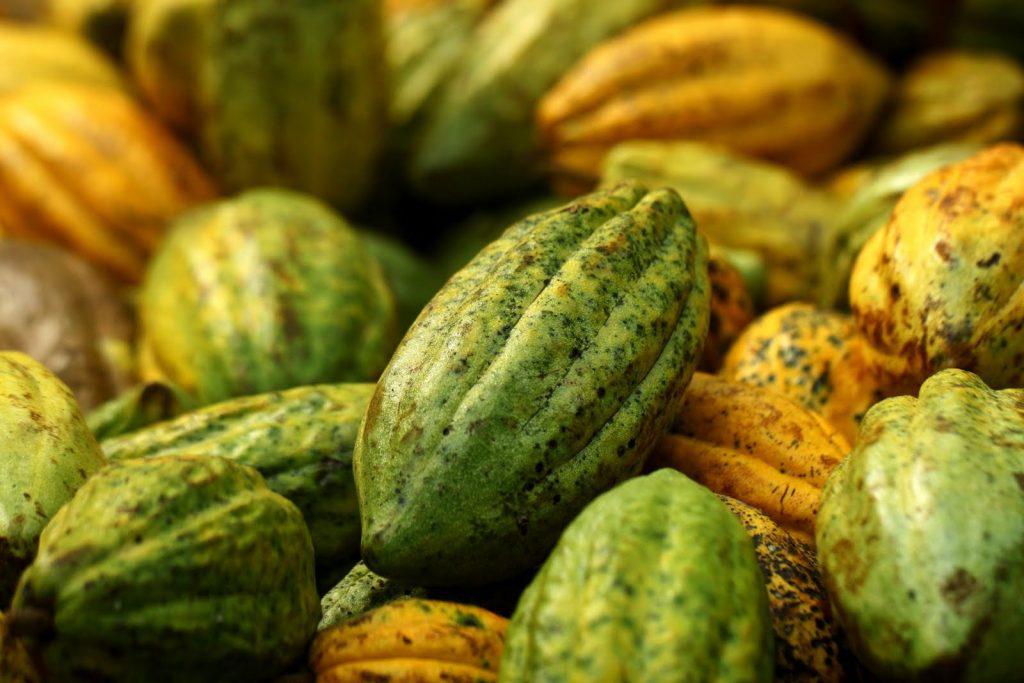CAMEROON: A new seed variety called “Brazilian cocoa” in vogue
In Cameroon, new seed varieties are boosting cocoa yields and contributing to the prosperity of farmers.
A new seed variety called 'Brazilian cocoa' is now widely used, bringing much better harvests to Cameroonian farmers
Antoine Mani Tonye pushes his thumb into the red earth to judge how deep he should plant his new seedlings. This Cameroonian cocoa farmer has had good harvests and increased his income since he started growing a new variety of seeds adapted to local conditions, developed in a laboratory in Yaoundé, the capital.
“The first year, my nursery was the most beautiful. With that, I was going to be able to get out of poverty,” said Mr. Tonye, who cultivates his own plot in the village of Azanzoa, on the outskirts of Mbalmayo, in central Cameroon. "Right now it's much better for me, I don't have to beg, I'm doing my best and I can manage on my own. For sure, agriculture will become my passion,” he says.
Cultivated by 600,000 people across Cameroon, cocoa is a vital sector for rural communities. But it is also a fragile crop whose yield tends to decrease due to the combined effects of climate change and soil depletion. This threatens the livelihoods of farmers. This is why the African Development Bank (AfDB) has granted funding to the Agricultural Research Institute for Development (IRAD), whose research focuses on the creation of suitable seed varieties.
These second-generation seed varieties developed by IRAD make it possible to obtain yields of 2 tonnes per hectare on average, whereas the first generation, developed in the 1970s and 1980s, gave around 1 tonne per hectare. “There has been tremendous progress. In less than twenty years, we have succeeded in doubling the potential yield of the varieties that growers now use,” explains Bruno Efombagen, researcher at IRAD in Yaoundé.
The demand for high-yielding seeds quickly outstripped the supply. To solve this problem, the African Development Bank has supported IRAD to ensure that these seeds are made available to a greater number of farmers. Throughout the country, IRAD is setting up more and more fields dedicated to seed production.

A new seed variety called “Brazilian cocoa” is now widely used, bringing much better harvests to Cameroonian farmers.
"In the past, our parents cultivated a so-called 'all-comers' variety, but today, thanks to progress in research, we have access to improved seeds", says Samba M'Viena, President of AKOM-COOP. -CA, an agricultural cooperative.
“You get the first harvests 18 months after planting, with flowers and a few pods on some stems. After two years, two and a half years, or let's say three years, you can already have a perfect harvest,” says M'Viena.
These varieties of better quality cocoa seeds have helped to stem the rural exodus. At least 62 young people have recently joined Mr. M'Viena's cooperative. “Their decision to start growing cocoa stems from the availability of improved seeds, he believes, since they allow rapid and abundant harvests. »
Brazilian cocoa not only brings a much higher yield to Cameroonian farmers, it benefits all links in the production chain.
Yannick Fosso, trader buys cocoa throughout the region and resells it in Douala, the economic capital. “The season lasts from August to January. It is during these six months that I earn all of my annual income, he explains. When you look at the plants, you see that the Brazilian cocoa is a better variety than the one our parents grew. It has a brighter color, the pods never darken, they are completely red. As a result, when you roast this cocoa, it gives a very nice color and a good taste. »
Cocoa is Cameroon's second agricultural export product behind cotton. This Central African country produces around 220,000 tonnes of cocoa per year, shipped abroad via the port of Douala. Cameroonian cocoa is also a calling card for the country. “Here, cocoa is at the heart of people's lives (and) it's nice to know that you're buying something that is then eaten all over the world. “says with great pride, Mr. Fosso.
Source: APO Group for JMI









